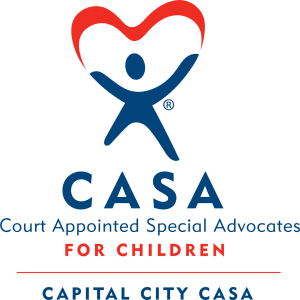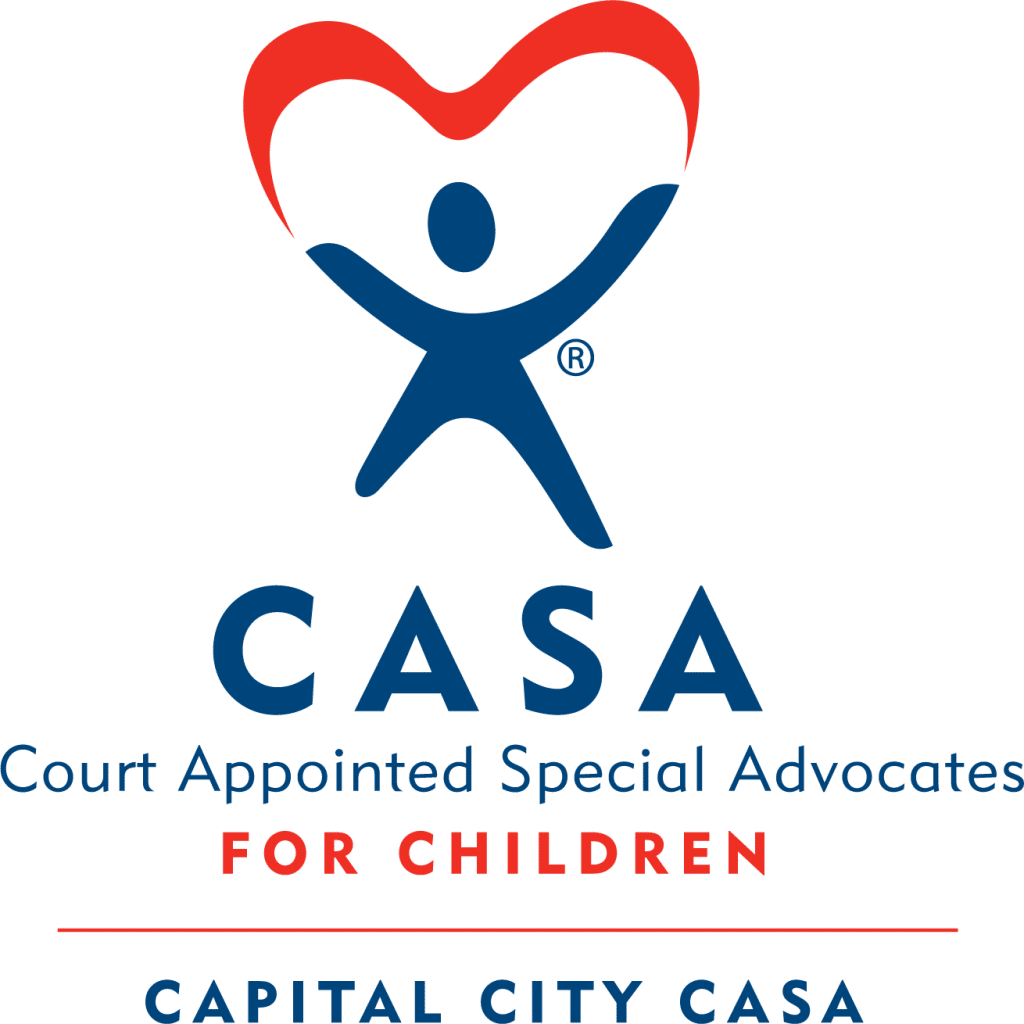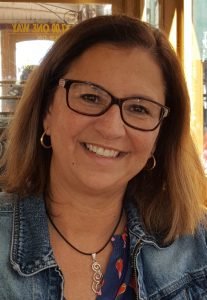
Cathy Wylie
My journey to becoming a CASA started with involvement in the Big Brother Big Sister program. I volunteer with many organizations and with a teaching background, I have a passion for helping children.
I have had a very long CASA case that has proceeded through about every phase of the juvenile system. As a CASA I have questioned the system, those trying to make the best decisions on the case, and myself at times. There are stressful and frustrating moments, but every time I witness a smile, a hug, or a simple "thank you" I am rewarded.
As my case progresses, I continue to learn how important my role has become to the children I represent. I am truly their advocate when they have no voice. Others on the "team" may come and go, but I am the constant, which is so important to a neglected or abused child.
Becoming a CASA has also been a wonderful addition to my life experiences. The reward I feel watching a child move through the system and finally find that safe space is very fulfilling. Then to take a step back and realize I helped make that happen is indescribable. The future is brighter for a child when a CASA is on their team.
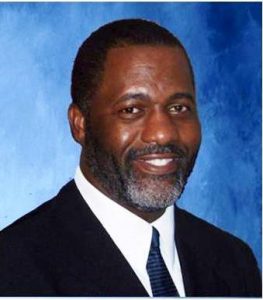
Curtis Scroggins
I volunteered for CASA with the hope of helping young minority males avoid becoming a statistic caught up in the court system. Having been adopted myself, I know what these kids are feeling when changes put you in an unfamiliar circumstance.
I also volunteer at the maximum-security correctional center here in Jefferson City and I see the outcomes of the lack of a strong male role model in young kids' lives and I hope to be that for some of these kids.
It has been very rewarding connecting with kids and helping them achieve their desired outcomes while also seeing many parts of the state as I visit kids as they journey through the system. The staff at the CASA office has made this experience insightful and seamless with the support and tools they provide to the volunteers. I would encourage anyone to volunteer. The only requirement is a caring heart.
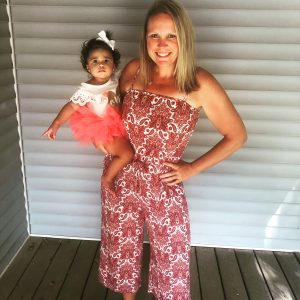
Molly Miller
Hello!
This little princess - my daughter, Maylin - is my prime reason for becoming a CASA.
I used to be a second-grade teacher, before changing careers and becoming a Registered Nurse, and I have always had a passion for helping others, especially those who don't get a voice of their own. Children are our future and I believe they all deserve a fair chance at success and healthy home lives. I want my daughter Maylin to see a mom who works hard for what is right, advocates for those who don't have anyone to stand up for them, and gives everyone a fair chance. By being a CASA volunteer, I hope that is one way she can see these attributes and hopefully carry them on in her life.
I completed my CASA training in February of this year and got my first case in March. I really enjoy advocating for the child on my case and getting to interact with him weekly, even though it has to be by Skype at this time. I am honored to be asked my story of why I became a CASA and to share a snippet of my passions.
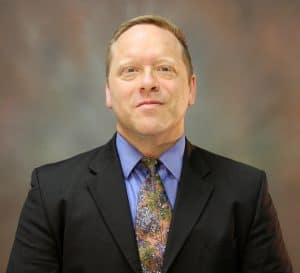
Mike Brewer
I joined CASA last year because I wanted to contribute to the community and I wanted a meaningful experience. I also wanted to learn something completely different. Going into "lockdown" the month after completing training was very unexpected; I had no idea how I would meet my responsibilities once I was assigned to my first case.
The next surprise came when I was assigned an infant instead of an older child. Up to that point, I imagined myself talking with a child old enough to converse, monitoring educational progress, and working with the team to ensure his or her viewpoint was heard. However, over the course of the last year, things have worked out pretty well. It's been wonderful to see the aforementioned infant grow into a happy toddler racing about. The team has been accepting of my role and asked for my input, which feels like I'm making that contribution that led me to CASA in the first place.
This is my first long-term volunteer commitment but definitely will not be my last. CASA has shown me how using my spare time to benefit others is just as rewarding as I hoped.

Korey Schenewerk
I have been asked this question by several people. It's not the easiest question to answer for me. It's not because I grew up in a broken home. It's not because I myself have been in "the system" as a kid. It's not because I was even a ward of the state. It's not because in my days as a Deputy Sheriff I saw the need.
I guess the easiest way to answer this is to tell you a little about myself. Several years ago I lost my mom to cancer. My mom was my best friend and my role model. I am to a T a "momma's boy" and I wear that like a badge of honor. When my mom passed away there was this overwhelming lost feeling that I could not shake & a hole in my heart that I could not fill. I, unfortunately, turned to a substance to see if that would help and it did, for a while.
Before I knew it all my experience in law enforcement and everything my parents taught me was gone and this substance, for a short while, would make the pain stop and would make that hole feel full again, Before I knew it I was addicted and I didn't know how to stop. This would continue for years and as this continued the shame and humiliation would grow inside me. The shame and humiliation were so bad at times I thought about ending my life on several occasions.
Fast forward a few years and I find myself at "rock bottom." Since I pushed my family away I didn't know where to turn. I was so angry at God I didn't think He would help me either. My family soon found out and jumped to action. I found myself getting the help I needed. I found out I am not alone in this world and most importantly I found that God had never turned His back on me.
I was introduced to a 12-step fellowship here in Mid Missouri (well actually it's worldwide) that showed me hope when I was hopeless and helped me with my relationship with God. In all this, I found that there are people in this world who need to know they are not alone. Most importantly it gave me a new love for life and showed me that no matter what I faced it was possible to go through hard times in life without the need for any substance. It showed me how destructive this disease is. I saw first-hand how once this disease enters a family its grip is strong and can span for generations. I have seen parents lose their kids & kids lose their parents to this disease.
After several years in recovery, I was introduced to the Central Missouri Foster Care & Adoption Association. I became a Mentor for a program they had called Transitions. The Transitions program is for teens 16 & 17 years old who are about to age out of the system. While doing the training I heard a heartbreaking statistic that 1 out of every 2 kids who age out of foster care struggle with addiction.
As I started working with my mentees I found this to be true. I had one kid whose mom was currently incarcerated because of her addiction and he kept telling his mom that his Mentor Korey was able to stop using drugs so she could too. As time with this program progressed more times than not these kids shared about their parent's drug use and how they had also used drugs. I saw this as an opportunity to show these kids they can break the cycle and it can stop with them. Sadly, this program ended in Mid Missouri.
When I heard about CASA I wondered if my personal experience with addiction would be beneficial or a hindrance. I spoke with Nikki Hazelton, who is now my CASA Team Lead. After a while of debate, I applied and started my CASA training. After my appointment by the court, I was given my 1st case. It was a young lady who gave birth to a beautiful baby boy who tested positive for drugs. Since we are in the middle of COVID-19 I was unable to do any face-to-face meetings with the parents, kids, or foster parents.
Turns out my experience with addiction and recovery will benefit me. I am able to relate with the parents' judgment-free and build a trust that is founded in our joint battle against a disease that is deadly. What I have learned is you never want to judge a book by its first few chapters, there are many pages not yet written and we never know what God's plan for us really is.
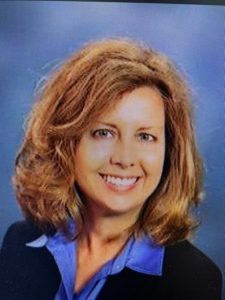
Andrea Spillars
Like many other families, this time of year we set out to watch all our favorite holiday movies, with the added benefit of more downtime to expand our repertoire. First on the list was a colorized version of "It's a Wonderful Life." For several years I had resisted the colorized version and actively, perhaps even adamantly, argued the merits of only watching the black-and-white classic. To my surprise, the characters seemed entirely different, enlivened by their rosy cheeks and bright eyes. I begrudgingly admitted defeat and agreed to shorten my "classic-version-only lecture for next year.
This extraordinary year has brought many new versions of our favorite traditions. As a newly minted CASA volunteer, however, the greatest change has been my perspective. Although I imagined advocating for children in need would be meaningful and rewarding, I did not foresee the profoundly positive impact it would have on my life. Advocacy is not foreign to me, it has been my vocation for many years. And, as a mother and grandmother, I'm comfortable serving as someone's fan club.
Yet, being a CASA volunteer awakens a completely different set of emotional and intellectual muscles. It involves sitting and talking with a child who is struggling to understand a life-changing situation that has no clear timeline. It involves comforting them about events that seem foreign and unknowable. It also requires ensuring the child's voice is included in the adult's conversation about their future. Ultimately, it requires supporting a family as they try to put the pieces of their life together.
Everyone struggles, but it isn't often you have the opportunity to be part of the team helping people get a second chance. So, this year I am particularly grateful for my new role as a CASA volunteer. And, for those who work every day to help families in crisis, I have no doubt a bell is ringing for you.
